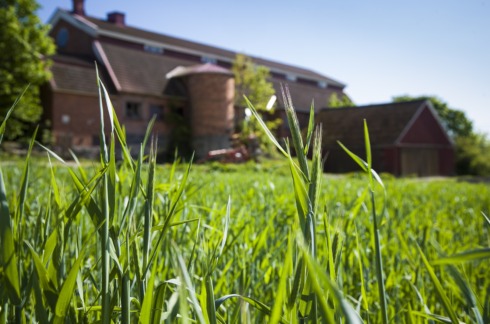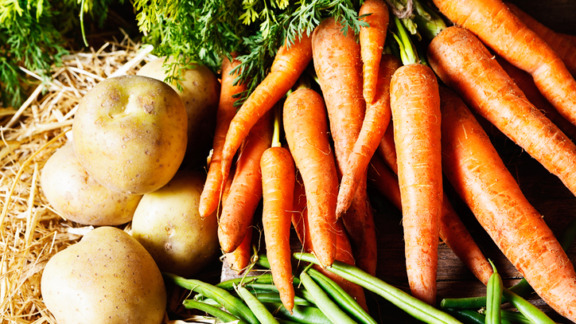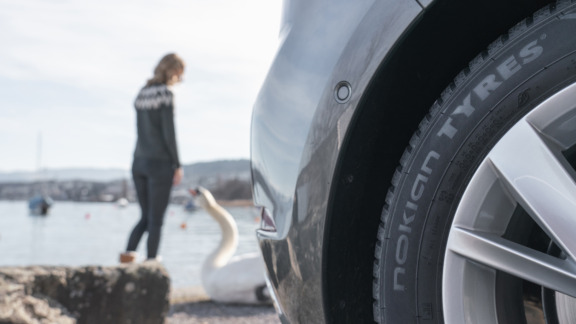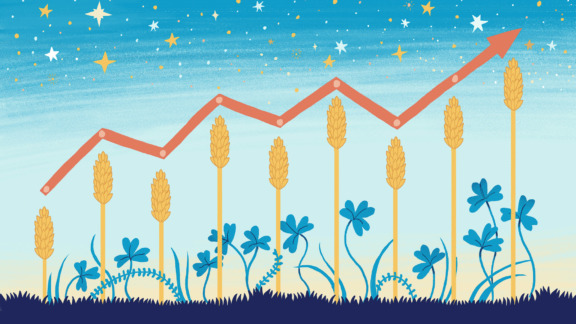Gasum turns wastewater from cargo ships into biogas
GASUM’S COMMITMENT
Gasum’s Baltic Sea commitment to BSAG supports the development of the circular economy. The energy company receives wastewater and bio-waste from cargo ships and turns them into raw materials for biogas.
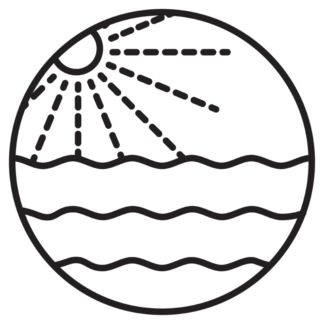
IN PROGRESS
Commitment made in 2020

DURATION
2022–2026
The Baltic Sea is one of the most heavily trafficked seas in the world. Discharging sewage, greywaters, and food waste into the sea accounts for a major share of the total nutrient load from maritime transport. The Baltic Sea Action Group’s (BSAG) Ship Waste Action seeks to work with other actors in the value chain to reduce this nutrient load.
Gasum is a Nordic energy company whose strategy is to promote development towards a carbon-neutral future in road and maritime transport and in industry together with customers and their partners. Gasum offers cleaner energy and helps its customers to reduce their carbon footprint and that of their customers.
Important sustainability themes at Gasum include climate change mitigation and promoting a circular economy. Using biodegradable waste in biogas production is an efficient way to help mitigate climate change, promote a circular economy, and improve the availability of cleaner energy.
To strengthen these goals, Gasum gives a Baltic Sea Commitment to BSAG for 2022–2026. Gasum commits to receiving ship-generated greywaters and biowaste for processing into biogas based on circular economy principles. Biogas is a fully renewable, low-emission fuel. When liquified, it can also be used in maritime transport. In addition to biogas, recycled nutrients are produced in the biogas process. Recycled nutrients can be used in agriculture and in industrial processes to replace synthetic and virgin nutrient products. Furthermore, Gasum commits to influence within its industry and, as a stakeholder and partner, to strengthen the circular economy regarding ship-generated wastes.
Producing biogas from wastewaters is an excellent solution as far as the Baltic Sea is concerned.
Gasum’s Baltic Sea Commitment focuses on BSAG’s Ship Waste Action and implementing the learnings and results of the initiative into Gasum’s operations. Gasum contributes to Ship Waste Action in the role of a processor for ship-generated wastewater and wastes, a biogas producer, and a fuel supplier for maritime transport.
COMMITMENT GOALS
1
Gasum promotes the circular economy by receiving ship-generated wastewater and waste, which are suitable for biogas and recycled nutrient production.
- Gasum receives and processes separately agreed amounts of wastewater and biowaste/food waste from ports selected with BSAG and participating in the pilot phase or from other ports, subject to a separate agreement.
- Gasum receives sludges from wastewater treatment plants which process ship-generated wastewater subject to a separate agreement.
- The aim is to examine and determine the volume of wastewater discharged into the ports selected and its potential for biogas production.
2
Gasum supports Ship Waste Action’s success with its actions and actively promotes opportunities for the circular economy.
- Gasum sets wastewater and biowaste treatment prices at an incentivising level for ports joining the Ship Waste Action, at least for the pilot period.
- Gasum develops its sludge-based fertilisers to meet the needs of regenerative agriculture and promotes the market for recycled nutrient products by assessing the carbon footprints of its products.
- Gasum provides science-based information on the use of sludge-based fertilisers in agriculture. Information about regenerative agriculture can be provided for Gasum by, for example, BSAG.
- Gasum contributes to communicating Ship Waste Action together with BSAG.
3
Gasum implements learnings from Ship Waste Action by developing its operations to strengthen the circular economy regarding ship-generated wastewater and bio waste and by engaging with its partners and stakeholders in discharging ship-generated waste into port reception facilities.
For us, the Ship Waste Action is a great opportunity to promote circular economy solutions and to work for the good of the Baltic Sea. Besides renewable energy production, we want to promote the agricultural use of recycled nutrients created in the biogas process.
Elina Saarivuori, Sustainability Manager, Gasum
Through this commitment, Gasum will contribute to the joint efforts in Ship Waste Action, which enables collaboration within the maritime transport industry and each organisation’s development to promote the circular economy. Furthermore, Gasum agrees to communicate this collaboration in its communication channels. The progress of the initiative will be monitored regularly in joint meetings.
The commitment lasts five years, and the progress will be reviewed with BSAG yearly.
CONTACT US



